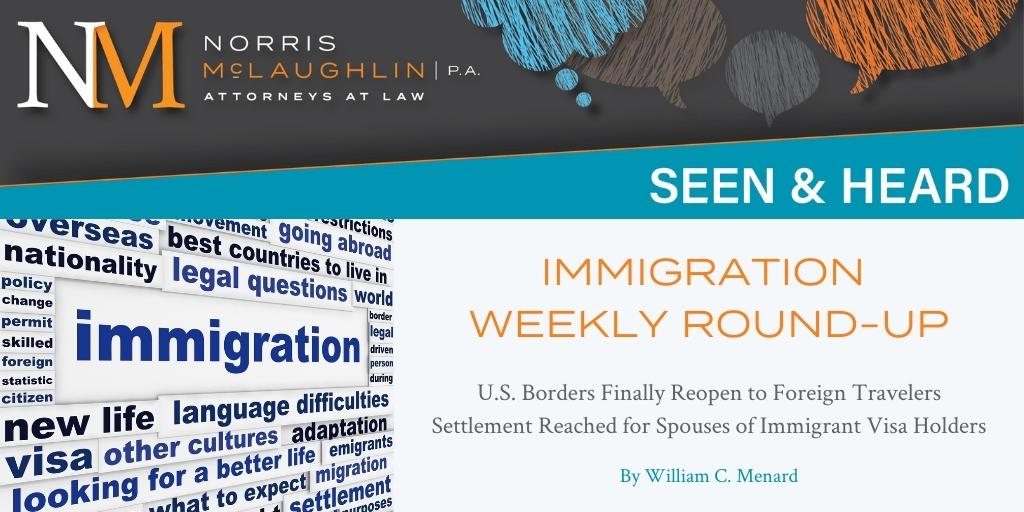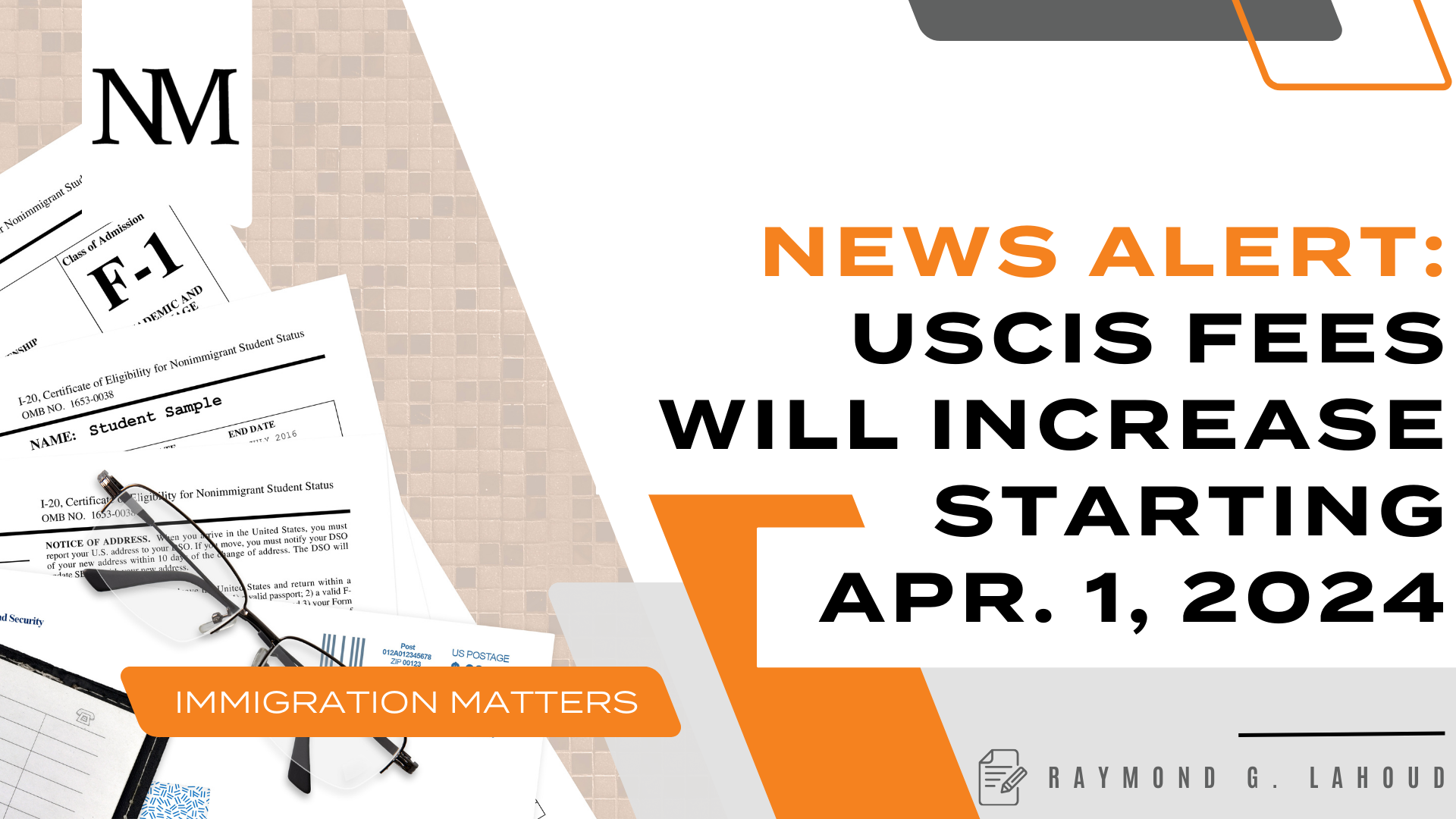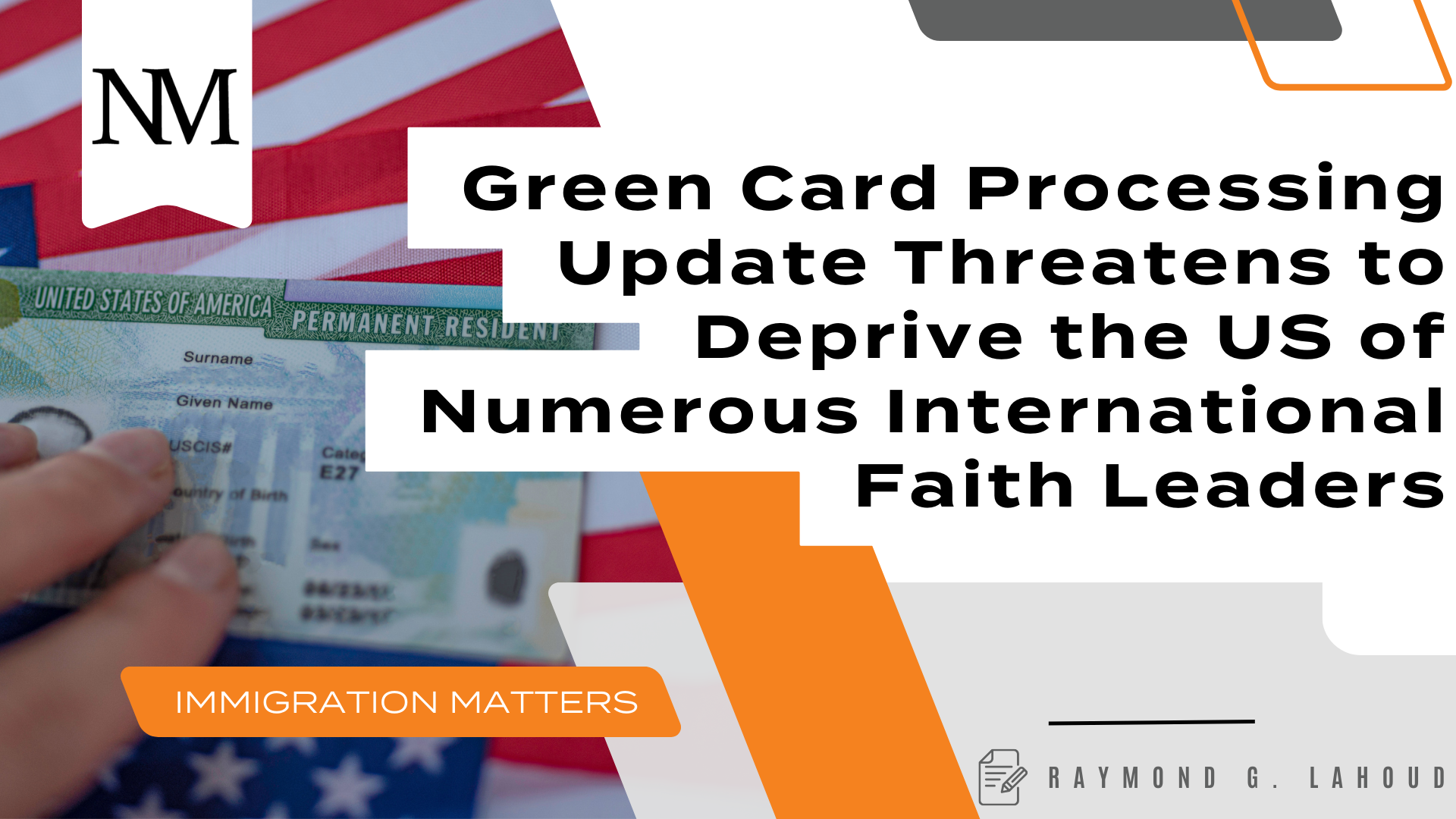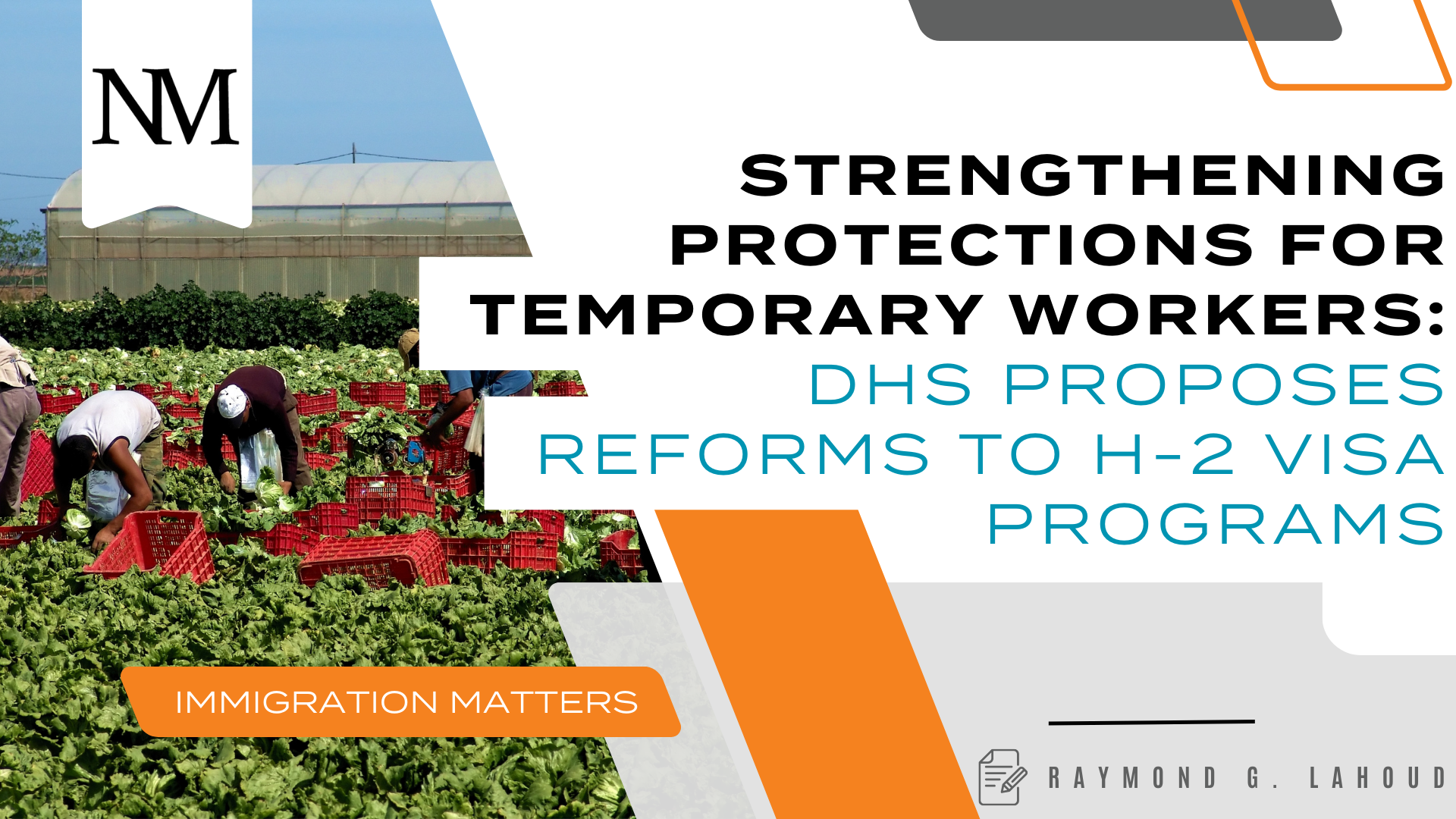Immigration Weekly Round-Up: Borders Reopen to Millions of Travelers; Employment Authorization Expanded for Spouses of Certain Visa Holders

U.S. Borders Finally Reopen to Foreign Travelers
This week, after 20 months of travel restrictions, the U.S. reopened its borders to millions of travelers around the world, resulting in emotional scenes at airports across the country as family members embraced each other for the first time in almost two years.
In March 2020, shortly after the COVID-19 pandemic made its way to the United States, the U.S. Department of Homeland Security ("DHS") imposed a travel ban for most non-U.S. citizens traveling from certain countries. The ban included China, India, member countries of the Schengen Area, the U.K., and Ireland, which were experiencing high rates of COVID-19 infections. The ban also restricted admission to the U.S. by land from both Mexico and Canada. On November 8, 2021, these travel bans were officially lifted, and travel has resumed.
However, to enter the United States, foreign nationals must still meet certain requirements. Travelers must be vaccinated against COVID-19 (with very limited exceptions) and must also present a negative PCR COVID-19 test taken within 72 hours of departure from their country. Even for those who are vaccinated, there are still barriers to entry to the United States if the vaccines received were not approved by the World Health Organization ("WHO"), such as China's CanSino vaccine or Russia's Sputnik V vaccine.
Several airlines experienced over 400% increases in international bookings, and airports throughout the United States welcomed thousands of travelers from previously restricted countries. Additionally, on the first day that the Canadian/U.S. land borders reopened, U.S. border posts saw heavy traffic from Canadians driving across the border. While the U.S. border with Mexico experienced fewer crossings than expected, Mexican government officials predicted that travel would pick up as the Thanksgiving and Christmas holidays approach.
Settlement Reached for Spouses of Immigrant Visa Holders
The Biden Administration has reached a settlement in a series of class action lawsuits that would make it easier for spouses of certain U.S. visa holders to start working in the United States without needing to separately apply for an employment authorization card and to receive automatic employment extensions. This settlement is expected to help thousands of spouses of foreign executives, managers, and specialty occupation workers who themselves have been facing extraordinary delays due to backlogs in processing applications at U.S. Citizenship and Immigration Services.
Spouses of L-1 visa holders (who are sponsored by U.S. firms as executives, managers, or a position requiring specialized knowledge) will automatically receive work authorization, rather than applying for a separate employment authorization card before their arrival in the United States. The settlement also reverses a current USCIS policy that barred spouses of H-1B visa holders (sponsored by U.S. companies for skilled occupations) from being able to take advantage of the automatic extension of their employment authorization while their applications were pending. The settlement also institutes an automatic work authorization extension for certain spouses of H-1B visa holders for up to six months if their visa has not expired.
These new regulations will remove thousands of pending applications from the USCIS backlog and reduce application fees for many families.
If you have any questions about this blog post or any other immigration concerns, please feel free to contact me at wcmenard@norris-law.com or 484-544-0022.




